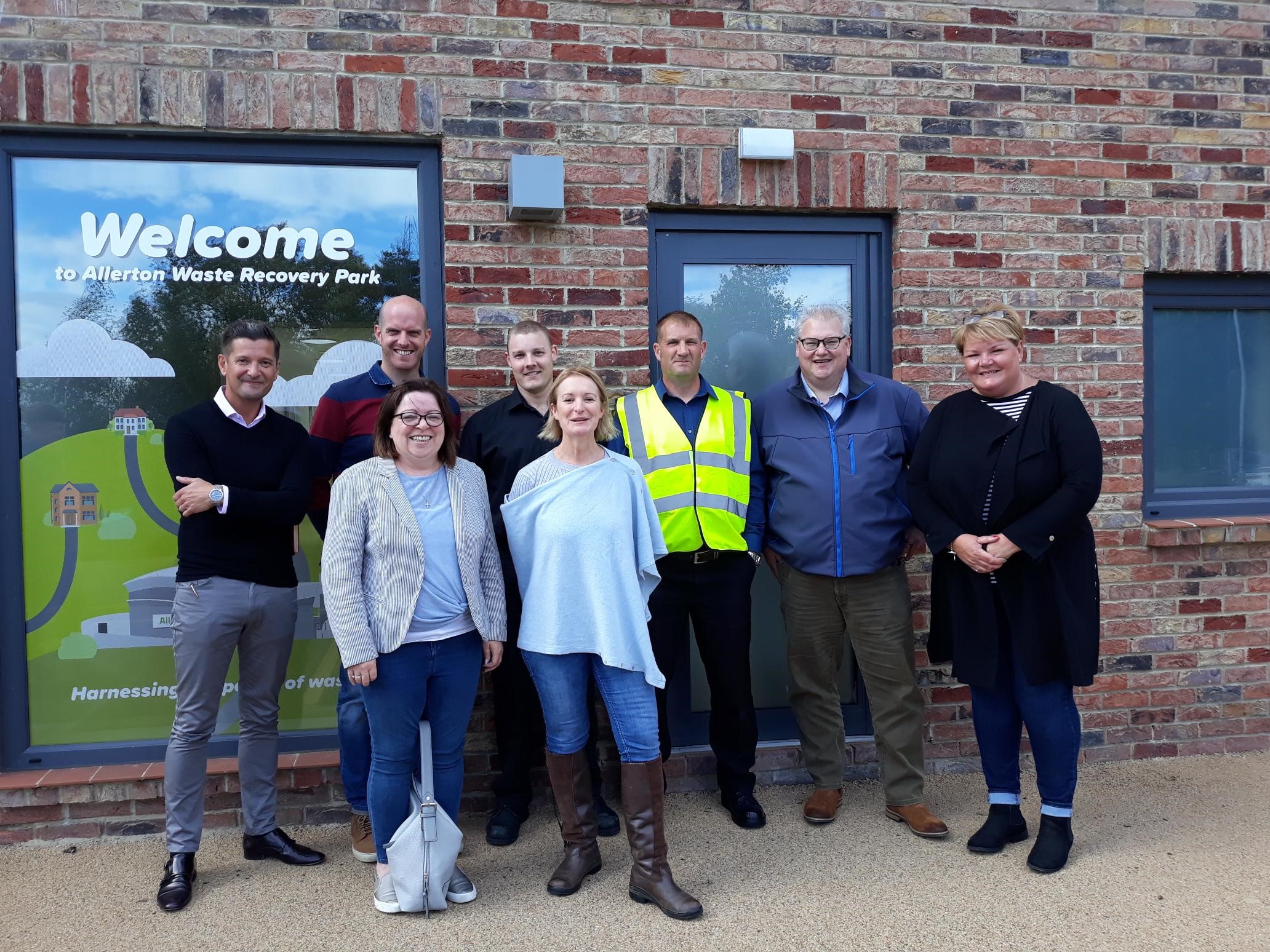‘Rubbish’ …. That was what we in Eurest have been looking at this week
At a time when there is so much information and perceptions around sustainability, it is very easy to make the wrong decisions. ‘Green washing’ is one of our risks when we seek advice on this subject.
That is why the team in Eurest work to understand the whole facts so we can support our client’s sustainability strategies and make decisions in our own business that work for the environment as a whole.
Our visit to Allerton Waste Recovery Park (AWRP) in North Yorkshire was a real eye-opener. They process 320,000 tonnes of household rubbish a year just for North Yorkshire. They deal with waste in three different ways: Mechanical Treatment – which extracts items for recycling; Anaerobic Digestion of organic waste (this produces biogas that is used to produce electricity) and; Energy from Waste - burning waste to create electricity.
We learned that the UK generates a staggering 26 million tonnes of rubbish a year, a lot of this is preventable. However, AWRP diverts over 90% of North Yorkshire household waste from landfill and at the same time sends enough energy back to the National Grid to power up to 40,000 homes, as well as the plant.
There were lots of learnings from this visit and from a rather unsure group (visiting a waste plant isn’t part of a normal caterer’s job!) and we left very impressed and a lot more the wiser.
There were a couple of learnings that stood out for us. 15% of the waste processed at Allerton is organic waste, that goes into their anaerobic digestion system, with the majority of that being food from our general waste. It was eye-opening to see good vegetables on the sorting line which should not have been there. 15% feels a lot of food waste, especially when we know world resources are under pressure. Developing recipes using potato peelings or pepper ends may feel quirky but actually reducing the food to waste from 48,000 tonnes in one UK region alone feels important.
The other is the general principle of how we manage our waste. We all left feeling the business case and the benefit to the environment of the Waste Recovery system were significant. As a local resident, I am only too aware of needing to balance the needs of the local community with the environmental benefit. The plant is estimated to save the local authority £135m in landfill tax over £25 years.
Reducing food waste and more effectively managing what is generated, for example sending to anaerobic digestion rather than landfill, are key areas of focus for us at Eurest. Having seen first- hand what is thrown away, my team and I are even more determined to reduce food waste and inform both our colleagues and customers what steps they can take, so together we can make a difference.
If you get a chance, we would highly recommend a visit - the tour is very well organised and a special thank you to Emilie Knight in particular.

